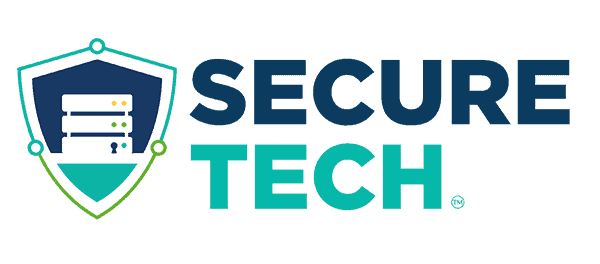backup and disaster recovery solutions
A good business continuity strategy focuses on being prepared, especially for possible technology disruptions. Hardware failure, cyberattacks, and natural disasters can lead to data losses or hamper major business processes.
Business Continuity Starts with Data Recovery You Can Trust
You can prepare for those scenarios by designing and implementing a disaster recovery plan. But, make sure you have a backup and disaster recovery (BDR) plan in place that’s adapted to your needs.
As a trusted data recovery service in San Antonio, we adhere to global industry standards. Rest assured, your data is in safe hands with our locally available experts.
Let’s take a closer look at two options for backup and recovery: cloud and onsite storage.
In today’s digital world, data is the lifeblood of businesses. SecureTech offers top-tier Data Recovery Services in San Antonio, providing businesses with the peace of mind they need to thrive in a fast-paced, data-driven environment.
Our comprehensive data recovery solutions are tailored to your specific needs and circumstances, utilizing state-of-the-art tools and techniques to recover lost data from various storage devices. We prioritize rapid response and minimal downtime, ensuring swift assessment, customized recovery plans, and efficient execution to retrieve your valuable data promptly.
Security and confidentiality are paramount in our data recovery process. SecureTech adheres to the highest standards, employing advanced techniques and secure procedures to protect your sensitive information at every step.
With SecureTech as your trusted partner, you can rest assured that your data is in expert hands. Countless businesses and individuals in San Antonio have benefited from our reliable data recovery and Managed IT Service solutions, allowing them to resume normal operations with minimal disruption. Don’t let data loss derail your business – contact SecureTech today and restore your peace of mind with our expert data recovery services.

Cloud Backup & Disaster Recovery
Relying on the cloud to back up data is a popular option because you can send your data to a public cloud service automatically or use a cloud-to-cloud solution to create backups. Those backups are generated by cloud-based applications for a seamless process.
If you choose the right provider, a cloud BDR is a reliable way to store data. Scalability is another advantage since you can always get more storage if you need it.
The cloud delivers short recovery times for small datasets, and keeping data off-site is a good idea in case your hardware becomes inaccessible as a result of a power outage, weather disaster or some other reason.
The drawbacks of cloud backups are that large datasets require longer recovery time, and choosing the right cloud provider can be challenging since the safety of your data depends on the provider you choose.
Onsite Data Recovery Texas
Investing in an onsite BDR solution is a viable alternative to relying on the cloud if you want to retain more control over your data.
There can be significant upfront costs associated with hardware, but storing your backup onsite gives you more control over who has access to the servers. You can also ensure that your storage solution meets compliance requirements for sensitive data.
There are drawbacks to onsite storage that you should be aware of. It leaves you vulnerable to lost or damaged hardware in a disaster, and there are ongoing maintenance and training costs. It’s also important that you consider the additional workload for your IT department.
In spite of those drawbacks, onsite backup recovery makes sense if you have to back up sensitive data or meet strict industry compliance requirements. The speed of recovering large datasets also is better compared with cloud-based solutions.

San Antonio Data Recovery Services
Since the cloud and onsite BDR have their drawbacks, you may prefer a third alternative, having someone else take care of all of that data storage for you. It’s called disaster recovery as a service.
That puts your data in the hands of a third-party vendor. It’s a flexible approach since you can work with the vendor to develop a backup and recovery plan adapted to your unique needs.
We at SecureTech, for example, have a BDR service that uses pooled storage on servers that we own. Your data is never handed over to another party, and we use an SSAE 16 Type II Certified/SOC Certified datacenter for safe and reliable backups. We can also build a backup and recovery solution with local storage if you want to retain physical control of your data.
We can start by conducting a technology business review to assess your unique needs and help you choose the most-relevant BDR solution for your data.
FAQs
Data recovery services are built to address both common and complex data loss scenarios. Whether it’s a simple mistake or a major system failure, recovery experts have the tools and expertise to retrieve lost information.
- Accidental deletion – Files removed unintentionally, even from the recycle bin
- Formatted drives – Recovery after accidental or intentional formatting
- Corrupted data – Files damaged due to system crashes or software errors
- Hardware failure – Damaged hard drives, SSDs, or RAID systems
- Logical errors – File system corruption, partition issues, or inaccessible drives
- Malware or ransomware – Recovering data lost or encrypted during an attack
- Power outages – Interruptions leading to unsaved or corrupted data
These services give businesses a second chance at retrieving valuable data that might otherwise be considered lost.
The recovery process begins with a detailed assessment to determine the cause and severity of the damage. Technicians then use specialized tools - often in clean-room environments - to extract data from the affected drive. Logical issues may be resolved with software, while physical failures often require hardware repair or component replacement. The recovered data is then safely transferred to a secure device for return.
Success rates vary depending on the type of damage, how quickly recovery is attempted, and whether previous DIY attempts were made. In general:
- Logical data loss (e.g. accidental deletion or corruption) has a high success rate—often 90% or more.
- Physical damage cases can still yield strong results if handled promptly by professionals.
- Attempting DIY recovery before consulting experts can significantly reduce the chance of success.
Engaging a trusted service early improves the likelihood of complete data restoration.
SecureTech treats client data with strict confidentiality throughout the recovery process. Measures include encrypted storage, secure transfer protocols, and access controls to ensure only authorized technicians handle the data. Non-disclosure agreements (NDAs) can be provided, and no data is ever retained post-recovery without explicit permission. The process is designed to meet both privacy expectations and regulatory standards.
Businesses should seek professional help when:
- Data is mission-critical – Losing it would cause major disruption or financial loss
- Hardware is physically damaged – Clicking sounds, overheating, or unresponsive drives
- Previous recovery attempts failed – DIY tools can worsen the damage if not used correctly
- Compliance or confidentiality is at stake – Regulated industries should avoid consumer tools
Relying on experts from the start prevents further damage and increases the chances of a full, secure recovery.
